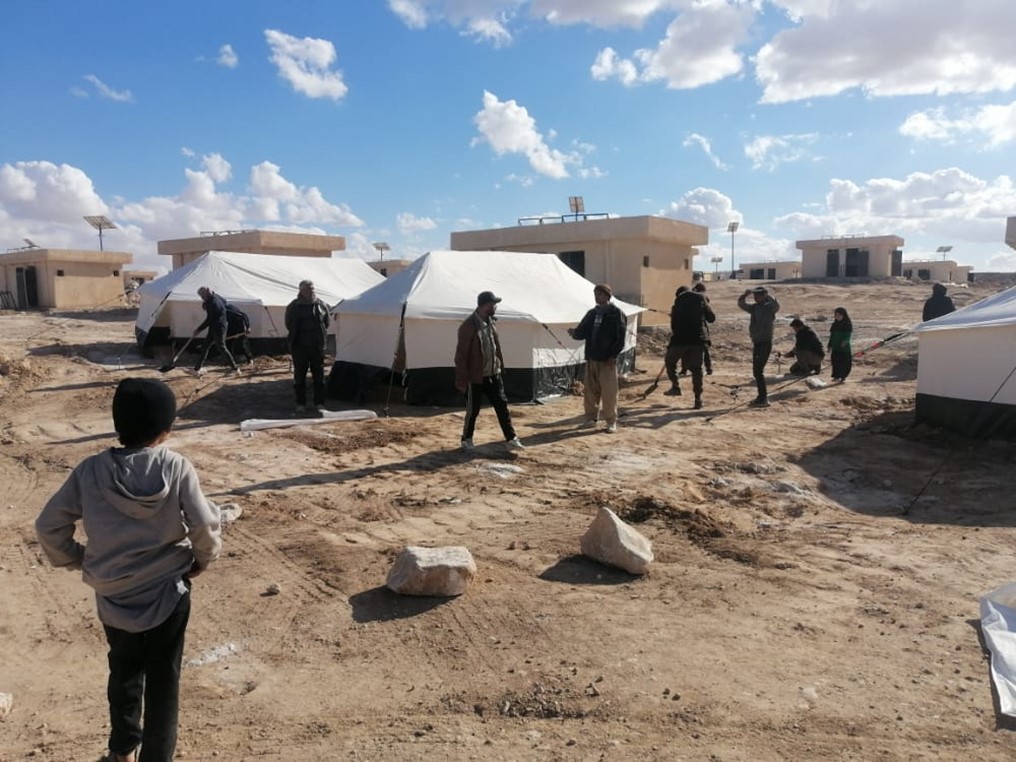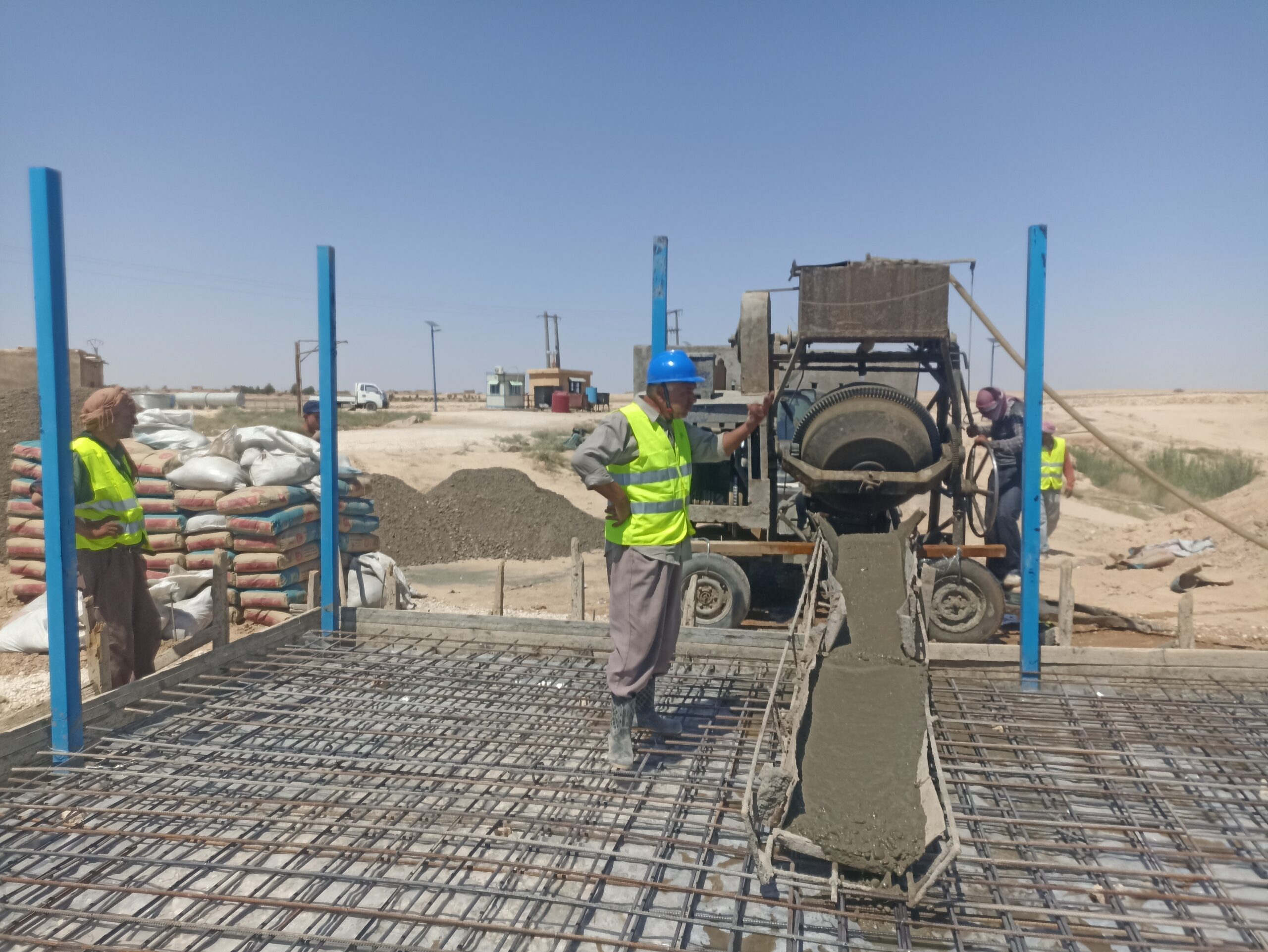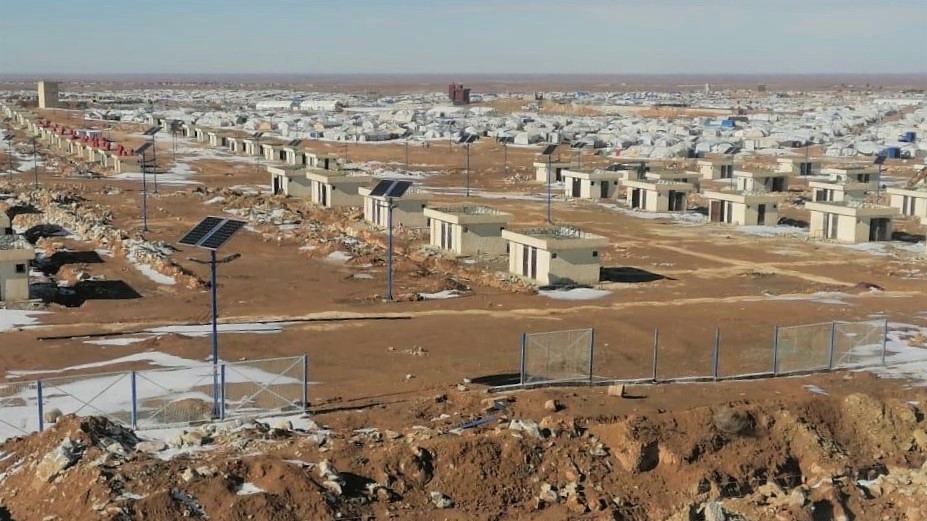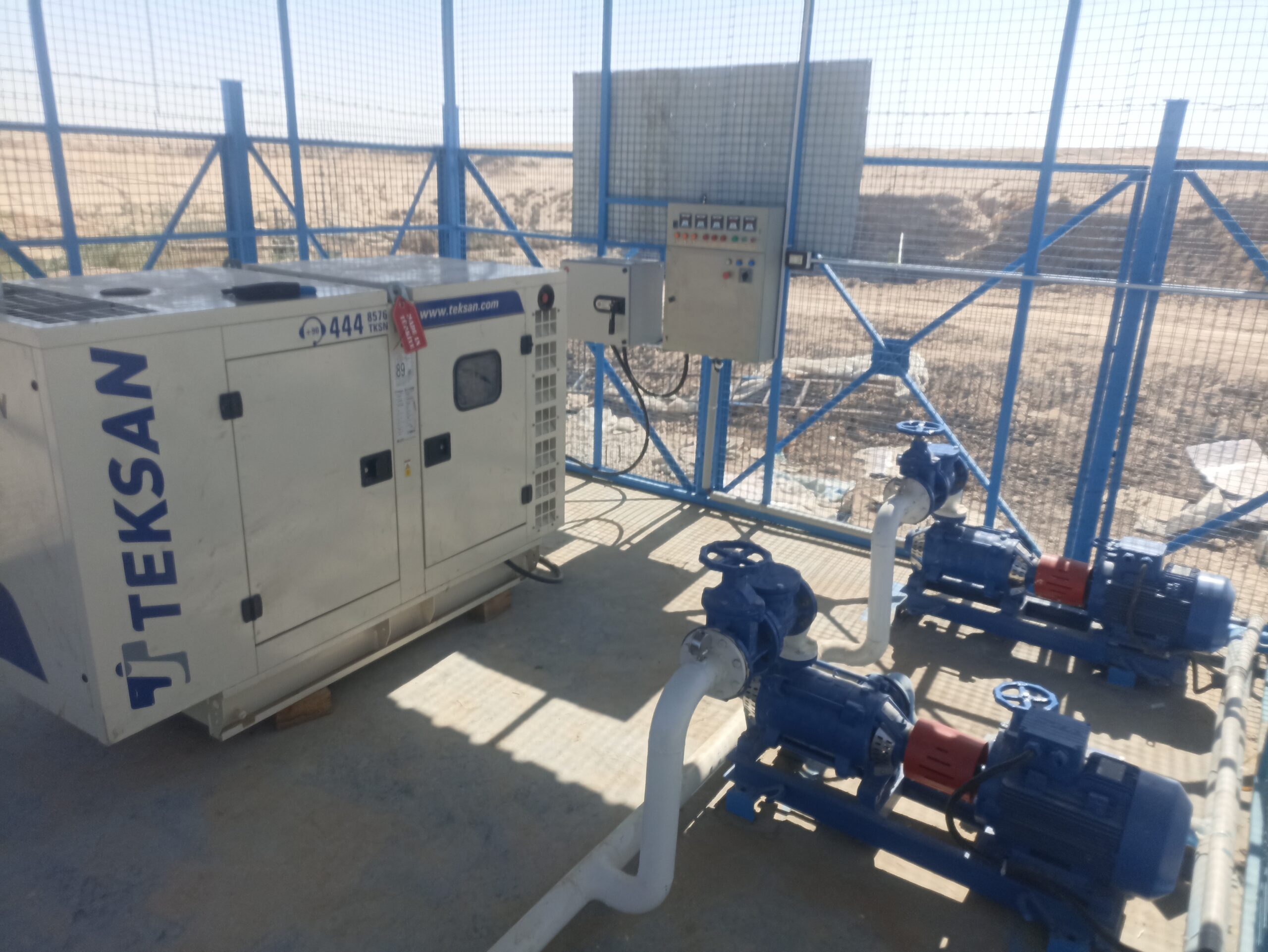Water scarcity affects communities across Syria, and people living in displacement camps are no exception. Often located in remote, desolate areas, these camps are typically disconnected from local utilities or services such as water networks found in urban areas.
In a northeast Syria camp that provides shelter for tens of thousands of people, Blumont has constructed a 5.7 km water network—the first durable, underground water pipe system that directly serves families in a camp in the region. The water system eliminates the need for daily water trucking, a complex process that residents have relied on for years. Now, a water pump station consistently delivers potable water through a newly installed network of underground pipes. “The new system allows part of the camp to use the water network without needing to resort to different other water supplies,” said Omar, a Blumont engineer on the project.

The new facilities, serviced by the water system, are adjacent to each family’s tent.
The water system follows the installation of a sewage network completed earlier in the year. Both systems were designed according to the highest international standards and engineered with quality materials to last in difficult weather conditions. They serve as pilot efforts to inform future improvements in the camp.
For the water network, our team strived to design a system that met the community’s evolving needs, focusing on durability and equitable access. Community members shared their priorities throughout the process, such as safety for women and children, equal distribution of water, and cleanliness of facilities. Working with partners, we conducted an assessment that found private facilities were also more cost-effective in comparison to maintaining communal facilities.

Building the foundation of the new water pump station in the camp.
Informed by data and community input, we built this system that provides 600 families with private access to latrines, showers, and kitchens.
In designing the system, the team balanced the community’s current needs with the recognition that camps are meant to be temporary shelters for refugees and displaced people. Until residents can return home to their countries, our goal is to find solutions that allow people to live safely and with dignity.
Women in the camp have said they are more comfortable using the private kitchens compared to the former, shared facilities. Also, some shared that they worry less about sending their children to the new latrines since they are close to their tents and have locks.

Each family serviced by the new water network has access to their own private latrine, shower, and kitchen. The latrines and showers are locked with a key to provide security.
There is also a sense of equity across community members. “Now, every family is receiving the same quantity of water on a daily basis, which makes them feel safe. They don’t have to wake up on time to meet the water truck every day in case someone else takes their water if they don’t make it,” said Mina*, Blumont’s on-site project coordinator.
According to Ibrahim, a managing engineer on the Blumont team, the community feels stronger ownership over these facilities because they were included in the decision-making process.

The water pump station for the new network is connected to a local spring.
With families spending less time collecting or accessing water, our team is seeing increased interest in community engagement and future projects. With daily needs met, residents are feeling less tension and have more time to think beyond the basics of managing day-to-day.
The new water network is completed and has passed the testing phase. Our team is continuing to work with partners to identify opportunities to build on this pilot effort and continue to improve residents’ quality of life and the peace of mind that comes with knowing that basic needs are met.
*Name changed for privacy protection.



